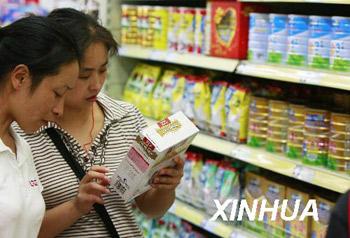China
Review of food safety scandals
WATCH VIDEO
Source: CCTV.com | 02-26-2009 09:42
Click for more news in China Today>>
A string of food safety scandals in recent years has alerted people of the potential dangers in what we eat and drink. Consumers, as well as quality inspectors, are increasingly aware of the amount of hazardous chemicals that could be contained in sub-standard goods.
 |
| A string of food safety scandals in recent years has alerted people of the potential dangers in what we eat and drink. |
Food poisoning cases have posed possibly the most serious challenge to Chinese-made products. One legacy of those food-borne scandals has been a public awareness lesson of a slew of previously unheard-of chemical jargon.
In 2006, Sudan Red Dye and Malachite Green were front and center. Sudan dyes are carcinogenic industrial chemicals and are banned in food use. But residues of the dye were found in some brands of pepper sauce, chili oil, and red-yolk eggs. In December that year, companies and farmers were caught raising ducks with Sudan dye, so that the eggs would turn red thereby fetching a higher price on the market.
And Malachite green is another substance that can cause cancer. The chemical is detected in freshwater aquatic products, especially turbot fish. Sellers fed the fish large quantities of medicinal supplements, to increase the fish's resistance to disease.
In the first half of 2007, a rat poison compound, Aminopterin, was found in Chinese-made pet food, which led to the deaths of dozens of cats and dogs in the United States and Canada. Meanwhile, melamine, a chemical used to make plastic was also discovered in pet food by American investigators. Millions of products were recalled.
And since September last year, the melamine-tainted milk powder scandal has never strayed far from the headlines. The former dairy giant Sanlu Group eventually declared bankruptcy this February. The company borrowed over 900 million yuan to pay the medical fees of children sickened by its tainted baby formula. Over 1,250 babies were reported to have developed kidney stones after drinking the contaminated milk powder. Thousands of people were arrested. The company's boss was jailed and sentenced to life in prison, while others connected to the case were sentenced to death.
The Sanlu scandal also severely affected the export of China's dairy products, as well as the Chinese consumers' confidence about some domestically-manufactured goods.
Editor:Zhang Ning



